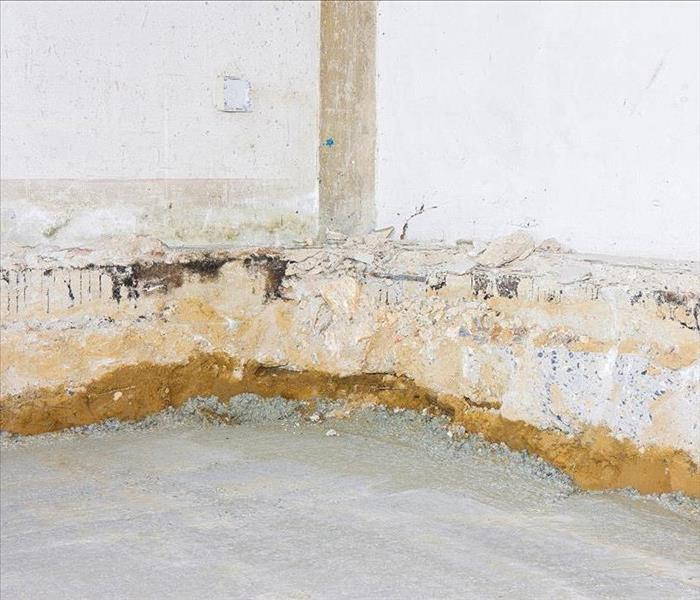Questions and Answers Regarding Your Wet Crawl Space
9/24/2021 (Permalink)
It's pretty common for homeowners in Black Forest, CO, to be complacent about a bit of water in the space below the home. After all, isn't a wet crawl space a normal occurrence from moisture during the seasons? However, there are some important concerns to address before turning your attention to other maintenance tasks.
What You Need To Know About Your Wet Crawl Space
Where Does the Moisture Come From?
You need to understand why the crawl space is wet. In many situations, moisture has made its way into the crawl space because of a leak in your plumbing system, water seepage from heavy rain or snow, or condensation. Water may also flow into the space from improper roof drainage or overflowing gutters. By pinpointing the source of the moisture, you may catch another proper you didn't know about, and you're ready to determine your next course of action.
Why Is Crawl Space Water a Problem?
A little bit of water from recent rainfall may not cause damage directly, but there are several ways that it can lead to trouble for you as a homeowner:
- High humidity in the crawl space causes your heating and cooling system to work harder, and this translates into higher energy costs.
- Excess moisture near the foundation of your home can increase wear and tear or lead to structural weakness through rot and rust.
- The damp, dark space under your home is an invitation to many creatures, including termites, rodents, and snakes. The unwanted pests may nibble on or burrow into the structural support of your home while also leaving behind an accumulation of droppings.
- Wet crawl space supports mold growth. These spaces are often full of organic materials, such as leaves, paper, and dead pests. As mold colonies grow, spores are released that can make their way into the rest of your home.
- When you want to sell your home, evidence of standing water or an earlier flood could discourage potential buyers, and damage caused by water could decrease the value of your home.
Although these common reasons to avoid standing water in the space under your home can cause enough trouble on their own, a combination of these concerns can lead to even more significant problems.
How Can You Prevent Water in the Crawl Space?
There are several steps you can take to prevent water from flooding into the crawl space. Most of these are preventative and some require an investment of time and resources:
- Maintain your roof and downspouts, so environmental water moves away from the foundation of your home.
- Install rain gutters and make repairs when they become damaged. Maintain them throughout the year keep them clear of debris and pests.
- Install a vapor barrier or other encapsulation system to prevent most crawl space damage and prevent moisture from entering your home.
- Talk to professionals about the best course of action for your home. They have insights into location-specific concerns and solutions.
When Should You Address the Problem?
Now is the time for you to take preventative action. Don't wait for evidence of a wet crawl space before you contact water damage cleanup and prevention professionals. Act immediately to eliminate the threat of damage.



 24/7 Emergency Service
24/7 Emergency Service
